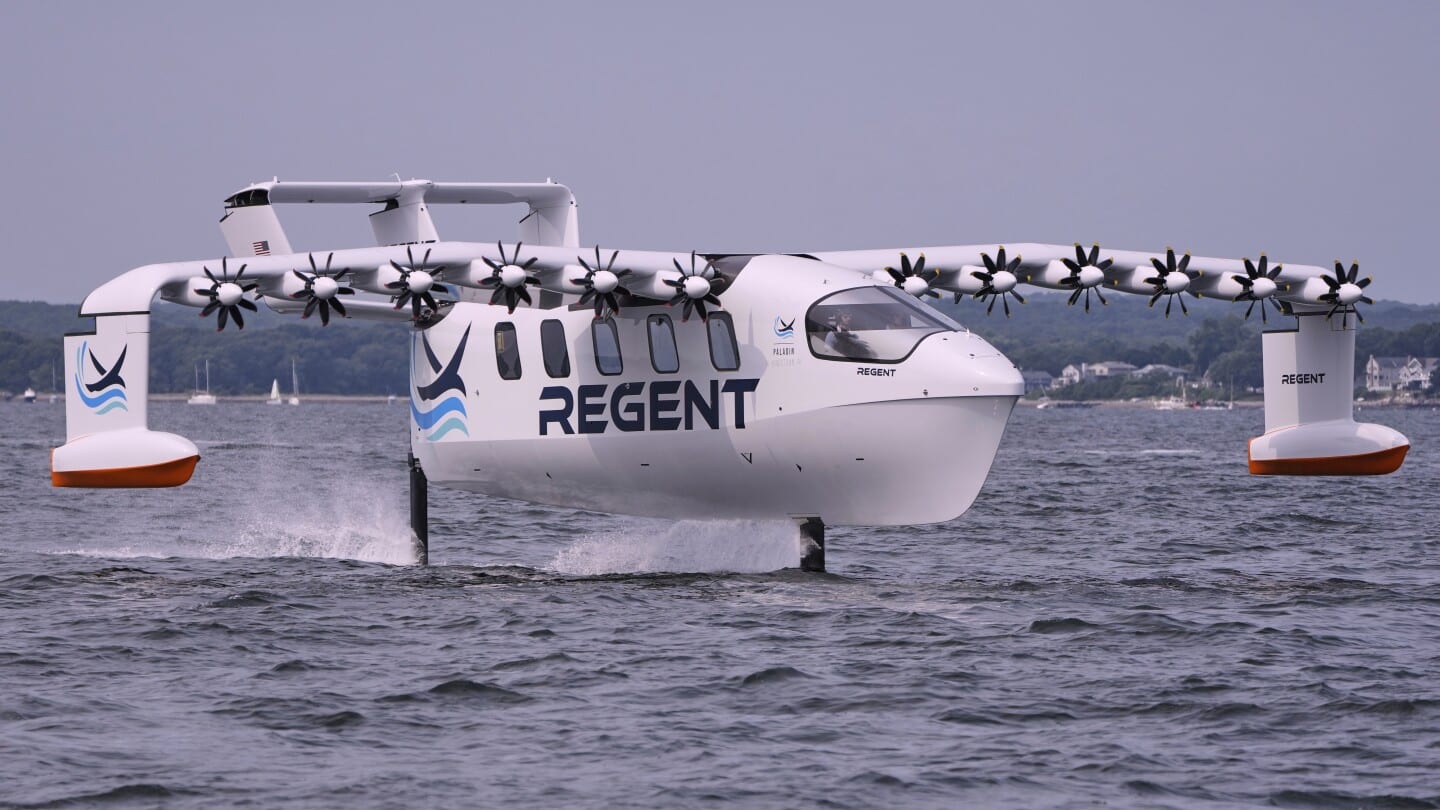How a ship that glides like a pelican could change travel and defense
New Seaglider Promises Revolution in Coastal Travel

NORTH KINGSTOWN, R.I. (AP) — The innovative Paladin, a winged passenger ferry developed by Regent Craft, is set to transform coastal transportation. With its sleek design and advanced technology, this electric-powered vessel aims to combine the speed of an aircraft with the ease of a boat. Following successful test runs on Narragansett Bay, the company is poised to explore both commercial ferry routes and military applications.
A New Era of Transportation
On a cloudy August morning, Regent Craft’s CEO, Billy Thalheimer, piloted the Paladin for the first time, testing its hydrofoils. The vessel features three operational modes: float, foil, and fly. Initially, it operates like a standard motorboat. As it moves away from shore, it rises on hydrofoils, achieving speeds exceeding 50 miles per hour while gliding approximately one meter above the water’s surface.
What sets the Paladin apart is its potential to soar 30 feet above the water at speeds up to 180 miles per hour. Although this capability has not yet been fully realized, trial flights are scheduled for late summer or early fall. If successful, the Paladin could drastically reduce travel time, allowing passengers to reach New York City in just one hour, compared to the three hours required by train.
Targeting Diverse Markets
As Regent Craft seeks to validate the Paladin’s design with the U.S. Coast Guard and other regulatory bodies, it is simultaneously courting customers for commercial ferry services in Florida, Hawaii, Japan, and the Persian Gulf. The company is also collaborating with the U.S. Marines to adapt the vessel for military use, potentially replacing electric batteries with jet fuel for longer missions.
Backed by prominent investors like Peter Thiel and Mark Cuban, Thalheimer envisions reviving the charm of 1930s flying boats, making travel over water more accessible and enjoyable. Cuban emphasized the need for efficient coastal travel, stating that Regent’s technology could simplify and enhance the experience.
Co-founders Thalheimer and Chief Technology Officer Mike Klinker, both MIT alumni, have been developing the Paladin since 2020. After testing a smaller model, they are now focused on the larger, 12-passenger version, which is expected to begin commercial operations by 2027.
Military Applications and Strategic Advantages
Regent Craft is also positioning the Paladin as a strategic asset for the U.S. military, particularly in the Indo-Pacific region. The vessel’s design allows it to operate below radar and above sonar, making it difficult to detect. This capability could be leveraged for troop transport, intelligence gathering, and support for unmanned systems.
Despite growing interest from the military, experts have raised questions regarding the Paladin’s operational range and transport capacity. Retired U.S. Navy Captain Paul S. Schmitt noted the need for further evaluation of the vessel’s performance in various sea conditions.
LR and REGENT Partner on Certification for All-Electric Seaglider
Commercial Potential in Coastal Regions
The commercial prospects for the Paladin are significant, particularly in regions like Florida, where traffic congestion on Interstate 95 can make travel cumbersome. Regent Craft envisions Miami as a central hub for its ferry services, offering a faster alternative to traditional transportation methods.
While competing electric hydrofoil startups are emerging, Thalheimer believes the Paladin can complement rather than compete with these technologies. By utilizing shared docks and charging infrastructure, the Paladin can cater to different travel needs and distances, enhancing the overall coastal transportation landscape.
